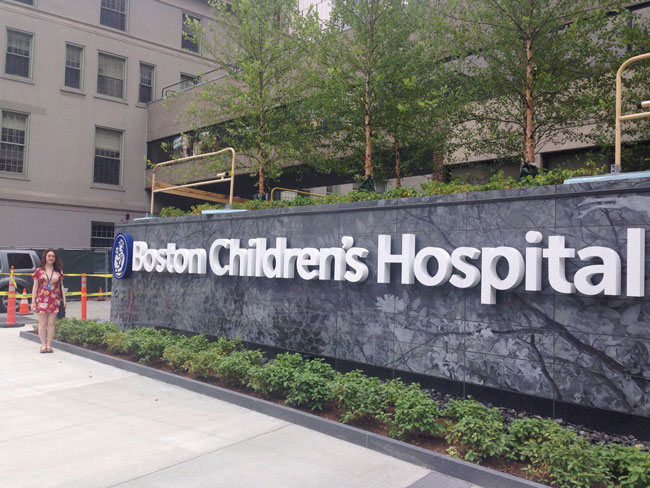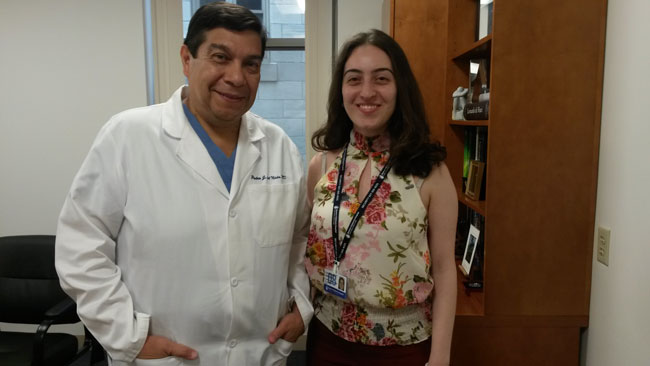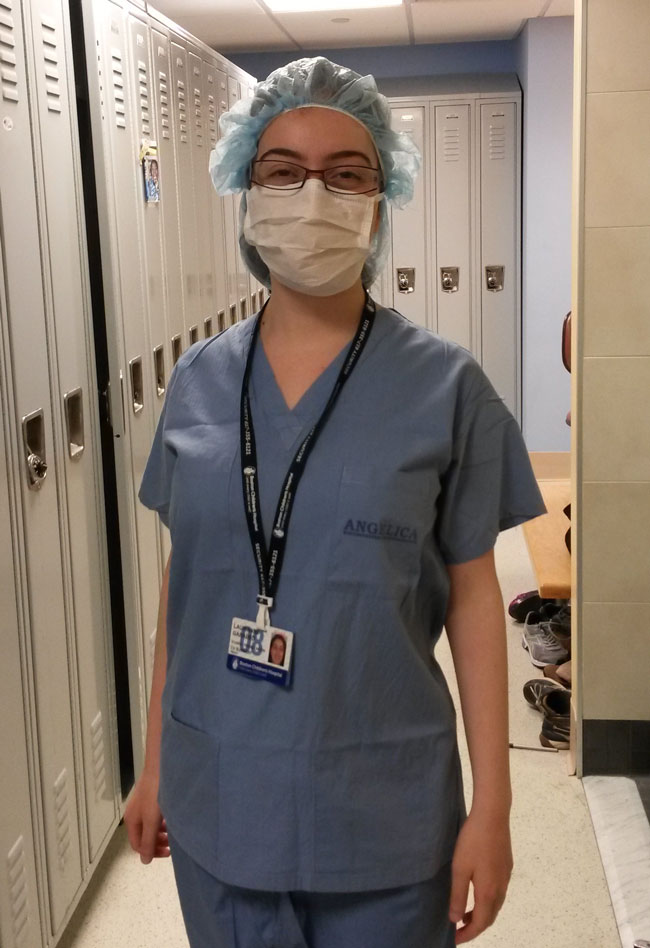
By Laurianne Rita Garabed
Every summer leaves us wanting more. More of the wonderful things that we had the chance to read about, to reflect and to work on; more of the exceptional people that we had the opportunity to meet and to talk to; more of the unique experiences that we had the courage to live. To me, the summer of 2016, which I spent almost completely in Harvard University’s Longwood Medical Area, in Boston, has been one of the most enjoyable experiences that I have lived so far.
Last year, I learned about a unique scholarship that has been offered since 2007 by the Graham Foundation of the American Association for Thoracic Surgery (AATS). Every year, a few Canadian and US medical students have the honor of being selected as recipients of this coveted scholarship, a truly exceptional opportunity, which offers a mix of both clinical and research exposure, in a thoracic or cardiac surgery specialty. The scholarship rapidly sparked my interest, as I realized that it represented “the” chance for me to work under the mentorship of a pediatric cardiac surgeon, whose work I had admired for many years, Dr. Pedro del Nido, Chief of Cardiac Surgery at the Boston Children’s Hospital (BCH).
A few months after I submitted my application, I received an email, stating that I had been awarded the scholarship, from which moment time flew by – it was already June before I even had the time to realize it.

On the Saturday following my last first-year exam, I set off for Harvard University’s International Office and, a few days later, I was finally in the hospital, with my Boston Children’s Hospital badge, walking amazed in this amazing institution, with all of the cardiac surgery articles that I had been reading during the previous three months overloading my backpack.
What first struck me in Longwood Medical Area was the large number of health professionals and families of patients constantly strolling or rushing along Longwood and Huntington Avenues. People from all over the world. Different languages everywhere, a bit like Montreal. A place where all gathered with a similar goal: providing the best care to a patient, to a family member, or to themselves. And I was also there, impatiently waiting to embark on this exciting journey, looking forward to giving my all and to proving my McGill pride to the international medical staff who always keep the BCH so wonderfully busy.
In my first weeks, I had the chance to meet several times with my mentor, Dr. Pedro del Nido, whose character turned out to be even more stellar than his well-deserved reputation. I also had the chance to meet with Sophie Hofferberth, the surgical resident who guided me throughout my internship in Boston. I soon came to realize that I had been given the chance to work in a wonderful department, surrounded by hard-working and driven physicians, students, biomedical engineers and scientists, among others. A team in which specialists do not hesitate to share their expertise by contributing, whenever they can, with a bit of knowledge or with some ideas. In the cardiology/cardiac surgery department at the Boston Children’s Hospital, conversations take you onto intellectual avenues that keep branching towards a more comprehensive understanding of the human heart, its physiological and pathological characteristics, and the preventative and therapeutic approaches that should – or should not – be used in certain patients.

During my internship, I had the opportunity to do many exciting things. Twice a week, I attended clinical conferences, where surgical cases were presented and discussed. In addition, during a weekly meeting of Dr. del Nido’s lab, I was able to get updates on the-cream-of-the-crop research results of the many cardiac projects that are concurrently being carried out at the hospital and around the world.
Those meetings were all very thought-stimulating and helpful in guiding me through the two congenital cardiac surgery research projects that I worked on simultaneously, one on tetralogy of Fallot and the other, on heterotaxy. In parallel, I was given the unique chance to study some of the specimens belonging to the famous “Van Praagh collection” of the Boston Children’s Hospital, which includes more than three thousand specimens of the Cardiac Pathology Registry at the BCH, the only collection of its kind and size in the world.
Finally, I was given the opportunity to shadow a few cardiac surgeries. All of them were uniquely surreal and have left an unforgettable impression on me. There is something almost “miraculous” about every step of a cardiac surgery, about how a tiny child has his or her chest open, about how cardiopulmonary bypass is set up and works, about how a piece of your body – the pericardium, for example – can be ingeniously used to repair some other part of your heart. All of those seemingly mechanical steps that one reads about in textbooks suddenly make sense as they are happening right in front of you, and one cannot keep himself or herself from staring in awe at the surreal yet meticulously studied delicacy of the surgical task.
Today, when I reminisce about my time in Boston, all of these positive feelings come back. I have witnessed the kind of self-nourishing motivation that a medical student comes across when shadowing passionate physicians who, like Dr. Pedro del Nido, have been able to maintain their frank interest in improving patient care and an insatiable curiosity for continuously perfecting surgical approaches for young patients. My internship, sponsored by the American Association for Thoracic Surgery and Harvard International Office, it was all I had hoped it would be: busy, thought-stimulating, and purposeful. I am very grateful to my sponsors and to my mentor for having made this internship so exceptional. With this great experience in tow, I returned to Montreal, eager and ready to continue my journey on the road to becoming a physician.
Laurianne Rita Garabed is a second-year medical student in the Faculty of Medicine at McGill

congratulations